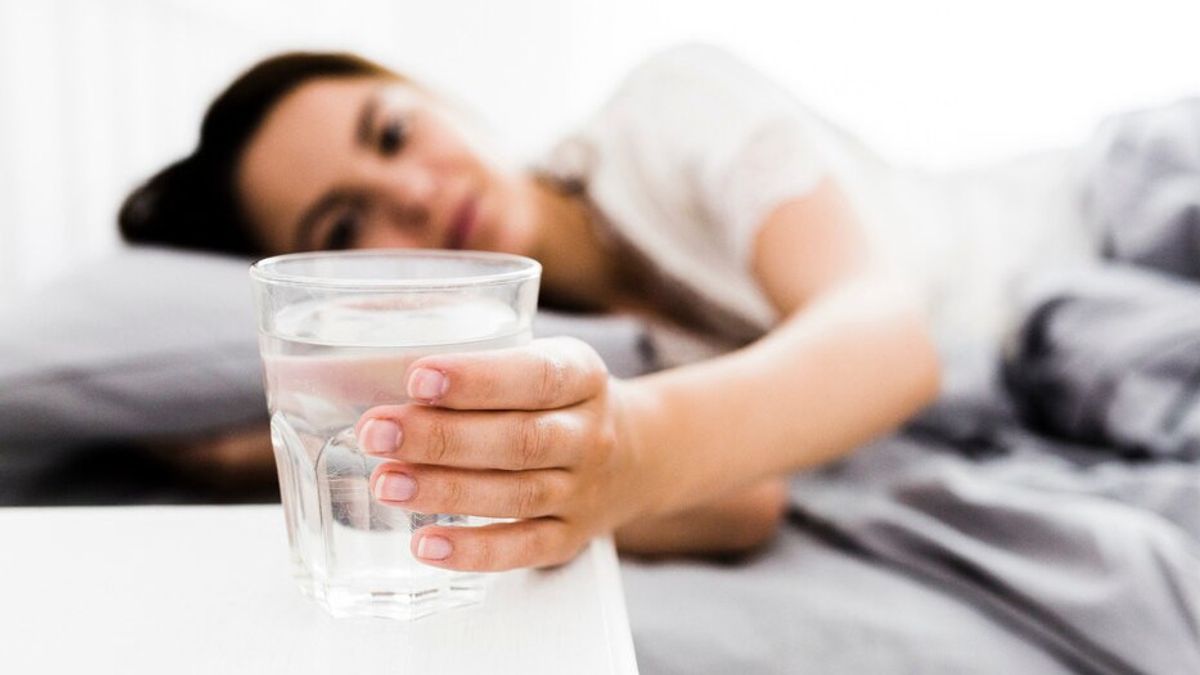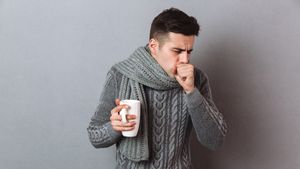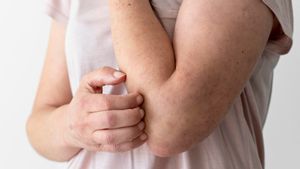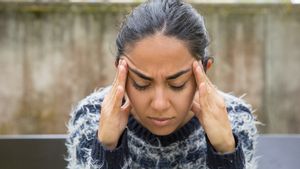YOGYAKARTA Too much drinking will make you wake up from sleep at night because you have to urinate. But dehydration when you sleep will also not be good for the body. So how do you prevent dehydration during night sleep and at the same time don't urinate more often which interferes with the quality of sleep?
Adult bodies average more than 50 percent consist of water. So it's no wonder water plays a role in many body functions, including during sleep. If you sleep for 7 hours every night, it's possible that you don't eat and drink that time. The brain during sleep releases a hormone called vasopression. These hormones help not get dehydrated when you wake up in the morning. But still, dehydration can interfere with sleep and lack of sleep can cause dehydration.
If you sleep without sufficient fluids in your body, you increase the risk of experiencing physical symptoms that make it more difficult for you to fall asleep and stay asleep but your mouth is dry, thirst, headache, and muscle cramps. On the other hand, if you are sleep less likely to be more susceptible to dehydration. Well, when you sleep is disturbed, the release of the vesopression is also disturbed. So that the body secretes the water that should be able to be held back. In addition, chronic lack of sleep can also interfere with the kidney function, making it more difficult for the body to regulate water levels effectively. To prevent dehydration during sleep at night, here's how.
Most adults need to drink about two liters every day. If you exercise, are breastfeeding, or are sick, you need to drink more water. You can make it more varied but stay healthy, for example adding lemons, berries, and mint leaves.
You not only get liquid from drinks, but also from foods that contain a lot of water that is consumed. For example eating watermelons, urus, oranges, spinach, labus, and carrots.
Coffee and caffeinated drinks are deurtic, which means causing body fluid levels to decrease by increasing the frequency of urinating. When consumed in moderate quantities with water, the two will not cause dehydration. But avoid drinking caffeinated drinks before bed in order to anticipate not to urinate and wake up from sleep.
SEE ALSO:
When you sweat, launch the Sleep Foundation, the body's water drops, increasing the risk of dehydration. Consider lowering the room temperature of the bedroom, using a fan, wearing comfortable thin clothes, and avoiding closed beds to keep it cool.
Having a healthy habit of sleep can reduce the risk of dehydration. Such as by practicing sleep hygiene, including sleeping and waking at the same time every day, establishing a calming bedtime routine, avoiding screen time an hour before bed, ensuring dark bedroom lights, calm, and comfortable free from disturbances.
How to prevent dehydration during the night's sleep above, it can be practiced. To prevent nocturia or wake up sleep to urinate, you can urinate before bed, reduce fluid intake before bed, and limit salt and protein intake at the end of the day.
The English, Chinese, Japanese, Arabic, and French versions are automatically generated by the AI. So there may still be inaccuracies in translating, please always see Indonesian as our main language. (system supported by DigitalSiber.id)


















